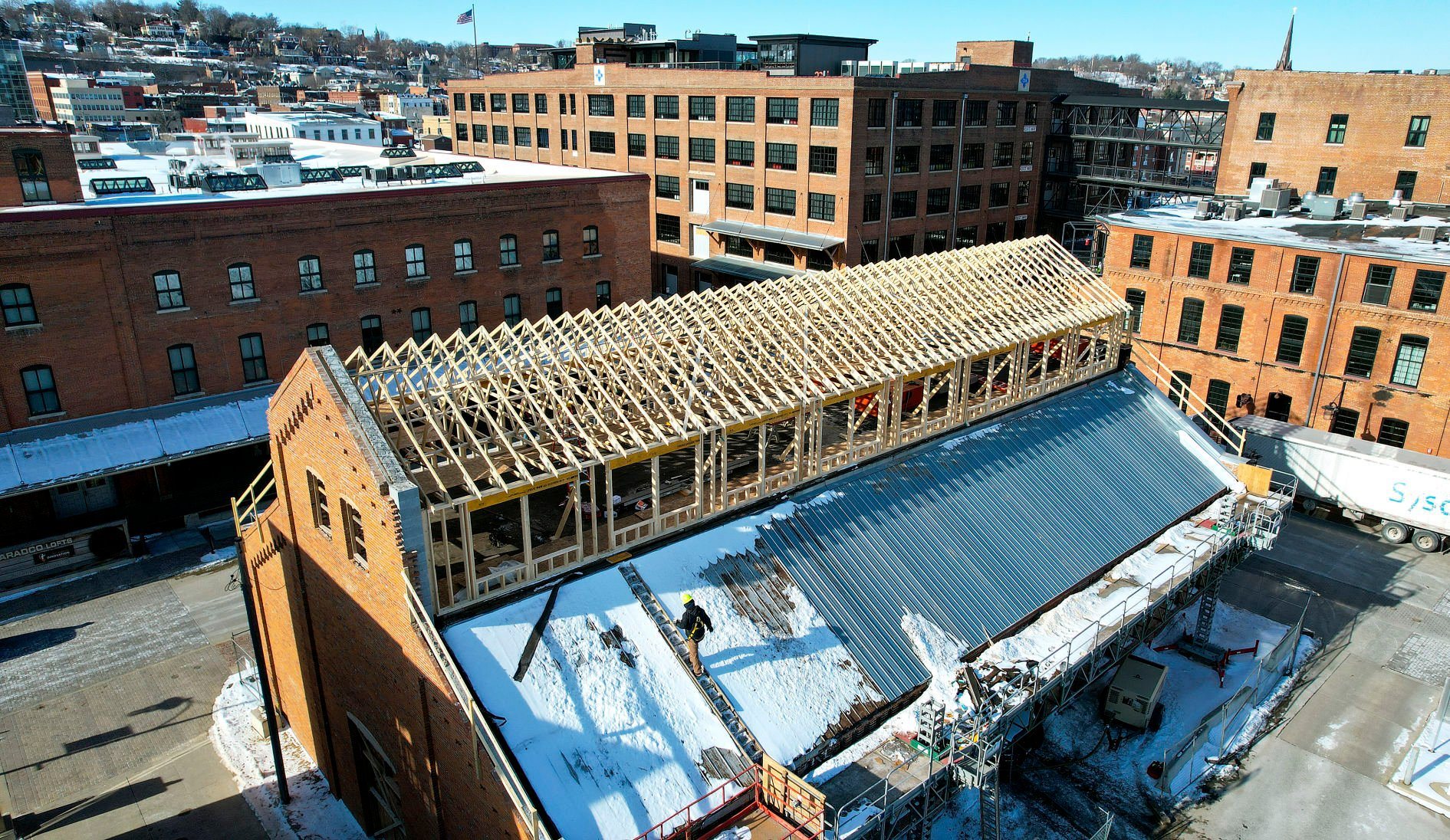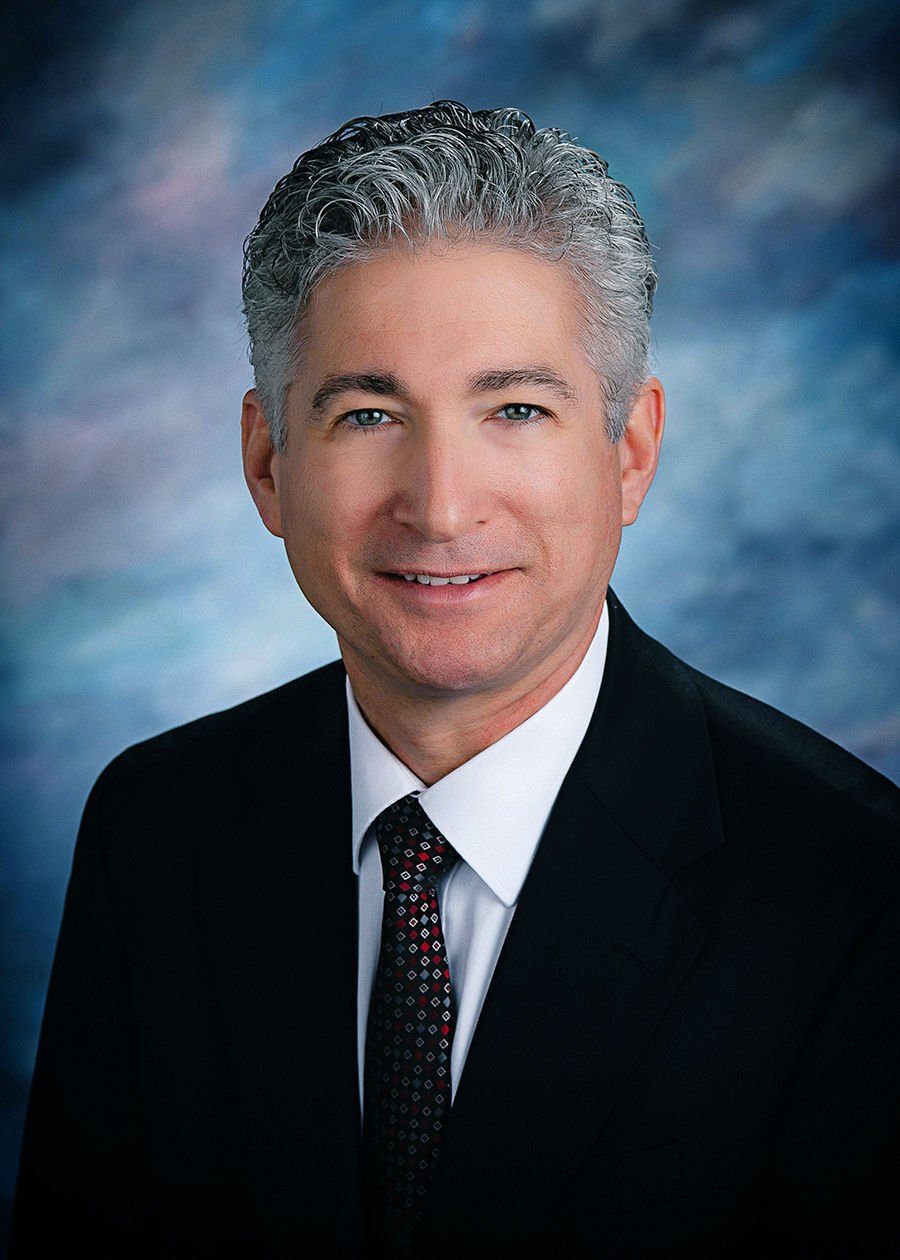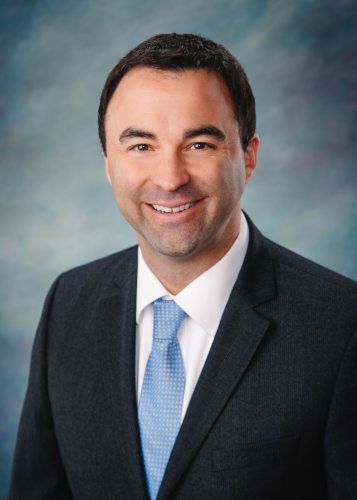Dubuque’s Millwork District has been revamped dramatically over the past decade-plus, and city officials are considering an update to the area’s master plan to guide future development.
City Council members this week discussed issuing a request for proposals for a consultant to update the Historic Millwork District Master Plan.
But a motion to solicit those proposals failed on a 3-3 tie, with Mayor Brad Cavanagh and Council Members Ric Jones and Danny Sprank voting in favor, while Council Members Susan Farber, David Resnick and Laura Roussell voted against it. The council’s Ward 4 seat, previously held by Cavanagh, will not be filled until after March’s special election.
After some discussion, council members voted unanimously to direct the city manager to seek additional input from Millwork District stakeholders over the next month in order to draft an updated request for proposals. Additionally, council members agreed that some business owners and residents tied to the district should be on the committee that will interview and select the consultant for the project.
“The RFP is all about saying what we are looking for, and if you don’t ask the right questions, you are not going to get the right answers,” Resnick said. “The stakeholders know the right questions.”
The Millwork District comprises a portion of Dubuque’s historic downtown, bordered by East 12th Street, White Street, East Fifth Street and U.S. 61/151.
City Council members adopted the district’s master plan in 2009, providing a vision for the development of the area. Since then, the district has undergone significant changes, including the restoration of multiple structures to pave the way for residential housing, commercial and retail businesses and downtown parking, all while maintaining the historic character of the area.
Several aspects of the initial plan have been realized. Multiple notable buildings, including the Caradco, Novelty Iron Works and Voices buildings, have undergone major renovations to create new rental housing units and commercial and retail space.
The city has spent millions of dollars on street reconstruction and repair, creating “complete streets” that accommodate both pedestrians and motorists passing through the district.
To date, there has been more than $120 million of public and private investment in the district, creating 164 rental residential units, with about 48 more in development, and 36 commercial and retail spaces, according to city documents. Several nonprofit organizations also are headquartered in the district.
A total of 619 jobs have been added to the Millwork District since redevelopment started, according to the city.
And development continues.
For example, real-estate developer Gronen is in the midst of restoring the Rouse & Dean Foundry building, 990 Washington St. Company owner John Gronen said the exterior rehabilitation of the structure is anticipated to be completed by early summer. Then, the company will focus on identifying a potential tenant while it works on completing interior restoration.
“There is a whole lot that needs to be done,” Gronen said. “It’s a very extensive rehabilitation.”
Often referred to as the Alamo building, the structure was built in the late 1800s and is believed to be one of the oldest — if not the oldest — structures in the Millwork District.
However, several aspects of the district’s master plan remain unrealized.
The southern portion of the area remains mostly undeveloped. The Jeld-Wen, Kirby and Farley & Loetscher buildings, all located on East Seventh Street, are three of the larger buildings that have yet to see major development.
The original master plan calls for the redevelopment of the Kirby and Farley & Loetscher buildings to create both office space and rental housing units. Jeld-Wen still was operating out of its spaces at the time of the plan’s adoption, so the document does not include a vision for its development.
Other aspects of the plan also remain incomplete, including the creation of a new park, the creation of multiple residential complexes on the north section of the Millwork District and the reprogramming of roads to reduce traffic congestion passing through and near the area.
City officials now want to update the plan to provide further direction for the district, focusing on continuing the ongoing development along with addressing current challenges facing the downtown area.
The city has allocated $50,000 to hire a consultant, who will lead community engagement efforts, update the plan and create an “implementation strategy,” according to city documents.
“We can have conversations on stuff that is not moving along and look at changes in Dubuque,” Cavanagh said. “My hope is that we can have a unified vision for what needs to happen next.”
The draft request for proposals lists several areas of concern among Millwork District residents and business owners that could be addressed in the updated plan, including parking, handling of refuse, lack of green space, sustainable practices, transit and access to food markets.
Gronen said the revamping of the Millwork District always was seen as a long-term process, but he believes that updating the plan will help pave the way for future development of the area in the future.
“We have come up with a pretty good product so far, and we want to see that continue to grow,” he said. “We can produce an even better result.”
Initially, city staff proposed having a consultant selected by March 1 and the updated plan be ready to present to City Council by August or September.
However, that process now will be delayed by the request of the City Council to gather more input on the language of the RFP.
Jill Connors, economic development director for the city, said staff will gather input from stakeholders over the next 30 days, but it has not been determined when a new RFP will be presented to City Council.




